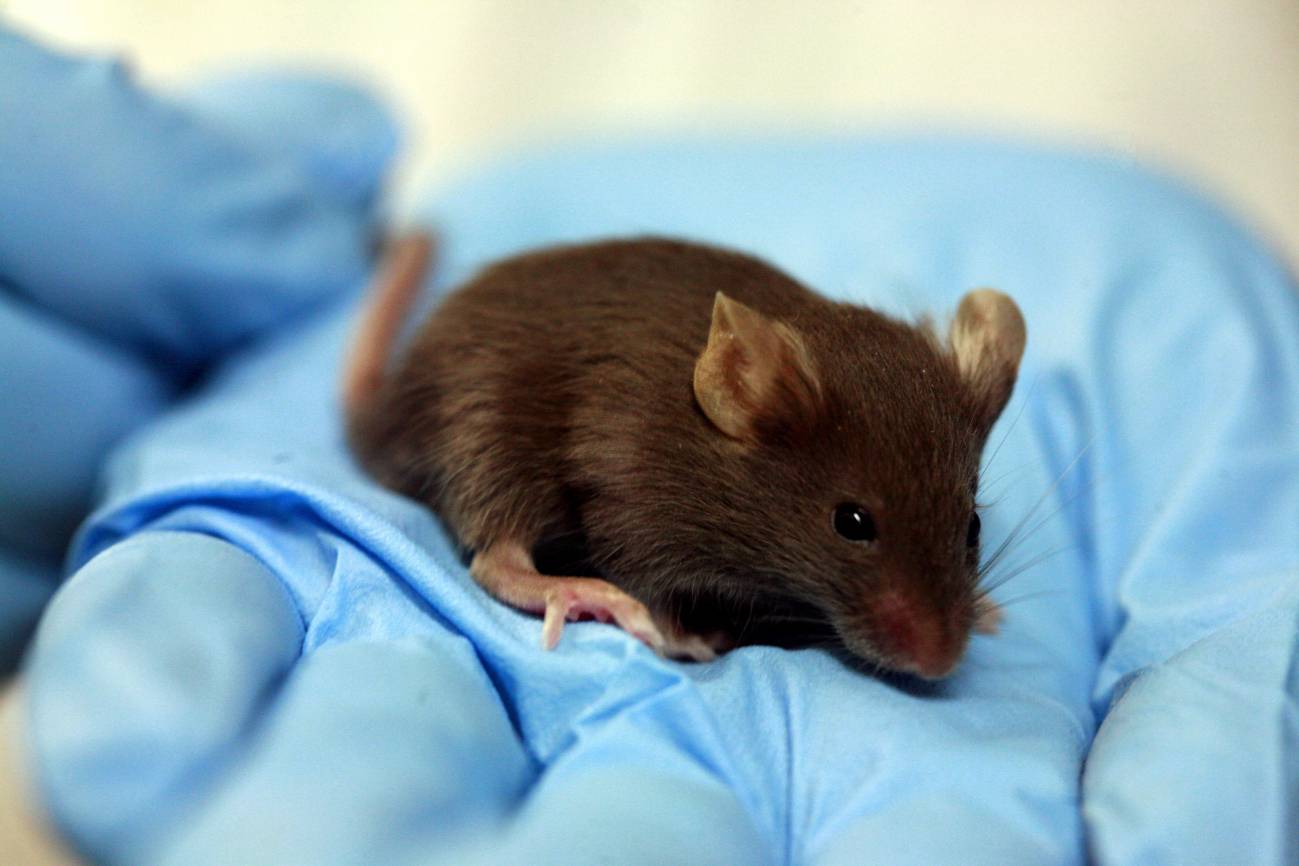Reactions: reduced oxygen levels are shown for the first time to increase life expectancy in mice
Researchers have shown that hypoxia, or oxygen restriction - equivalent to living at 5,000 metres above sea level - increases life expectancy by up to 50% and decreases neurological decline in laboratory mice. It has already been shown in yeast, worms and flies, but this is the first time it has been demonstrated in mammals. The results are published in the journal PLOS Biology.

Nabil - Hipoxia (EN)
Nabil Djouder
Head of the Growth Factors, Nutrients and Cancer Group of the National Cancer Research Center (CNIO)
Researchers have been investigating interventions to extend healthy lifespan, and one such intervention is chronic continuous low oxygen or hypoxia. Previous studies have shown that this intervention delays replicative senescence in cells and extends the lifespan of non-mammalian organisms. To assess its effects on mammalian aging, scientists conducted an in vivo study using a mouse model of accelerated aging. These mice exhibit aging-related characteristics in multiple organs and have a shortened lifespan that can be extended through dietary restriction. The study revealed that subjecting the mice to chronic continuous hypoxia increased their lifespan by 50% and delayed the onset of neurological decline.
This study is significant as it demonstrates for the first time that "oxygen restriction" can extend lifespan in a mammalian aging model. It also contributes to our understanding of the impact of low oxygen levels on mammalian organisms. However, the exact mechanisms through which hypoxia exerts its effects are yet to be determined. Surprisingly, hypoxia did not affect food intake significantly and had minimal impact on aging markers such as DNA damage or senescence, suggesting that it operates through a mechanism distinct from dietary restriction.
This study adds to existing evidence by demonstrating that chronic continuous hypoxia, or oxygen restriction, can extend the lifespan of non-mammalian organisms such as laboratory yeasts, worms, and fruit flies, most likely by delaying replicative senescence in cells. However, what makes this study unique is that it is the first to show that oxygen restriction can extend lifespan in a mammalian model of aging.
The implications of this study are significant as they suggest that chronic continuous hypoxia could be a promising intervention for prolonging lifespan and delaying age-related neurological decline. This finding may have implications for the development of therapies targeting aging and age-related diseases in humans. For instance, living in conditions with restricted oxygen levels, such as at high altitudes or in mountainous areas, could potentially extend lifespan. However, further epidemiological studies would be needed to verify this assumption.
It is important to acknowledge that the precise mechanisms through which hypoxia exerts its effects are still unknown. Further research is needed to gain a comprehensive understanding of these mechanisms and to assess the potential therapeutic applications of oxygen restriction in humans. One potential mechanism is that adaptation to low oxygen levels involves coordinated downregulation of metabolic demand and supply, potentially by restricting the Krebs cycle, which could result in energy conservation at the cellular level. It is worth noting that Metformin, which is known to inhibit ATP production, has shown similar effects in increasing lifespan across various organisms. Additionally, hypoxia may reduce ATP utilization by downregulating protein translation, potentially contributing to increased lifespan. These mechanisms and reduction of energy (ATP) could potentially play a role in the effects of hypoxia and warrant further exploration and investigation.
There are important limitations to consider in the following text. The mouse model used in the study is a model of accelerated aging and may not fully represent the complex aging process in humans. While the findings are significant in demonstrating the potential of oxygen restriction to extend lifespan in a mammalian model, it is essential to exercise caution when extrapolating these results directly to humans.
Further research is necessary to validate the reliability of these conclusions and to determine if similar effects can be observed in human subjects. Epidemiological studies or clinical trials would be required to establish the efficacy and safety of chronic continuous hypoxia as an intervention for human aging. Also, physical exercise can lead to some extend to hypoxia and could extend lifespan. This relationship is not reported in this study. It is also important to note that the exact mechanisms underlying the effects of hypoxia on lifespan extension are not yet fully understood.
If future studies confirm the findings and demonstrate the applicability to humans, potential applications could involve developing interventions that simulate or mimic chronic continuous hypoxia in a controlled manner. However, careful evaluation of the risks and benefits would be necessary to ensure the effectiveness of such interventions in human populations.
Kobbe -hipoxia (EN)
Cayetano von Kobbe
Senior Scientist at the CSIC and researcher at the Centro de Biología Molecular Severo Ochoa
This study is a very interesting proof of concept on the effect of low oxygen levels on longevity in mice, demonstrating what has already been seen in other experimental models.
The murine model of premature ageing used is very specific (mutation of a gene involved in DNA repair), which limits the conclusions. Ideally, we would like to compare it with the effect of low oxygen levels in wild type or normal mice, but this would imply trials lasting more than two years, rather than six months, as in the present study.
The results are therefore difficult to extrapolate to humans, firstly because of the obvious differences between mice and humans, but even more so because of the use of a mouse model with a very specific mutation.
Cayetano von Kobbe is co-founder of SenCell Therapeutics.
Rogers et al.
- Research article
- Peer reviewed
- Experimental study
- Animals


